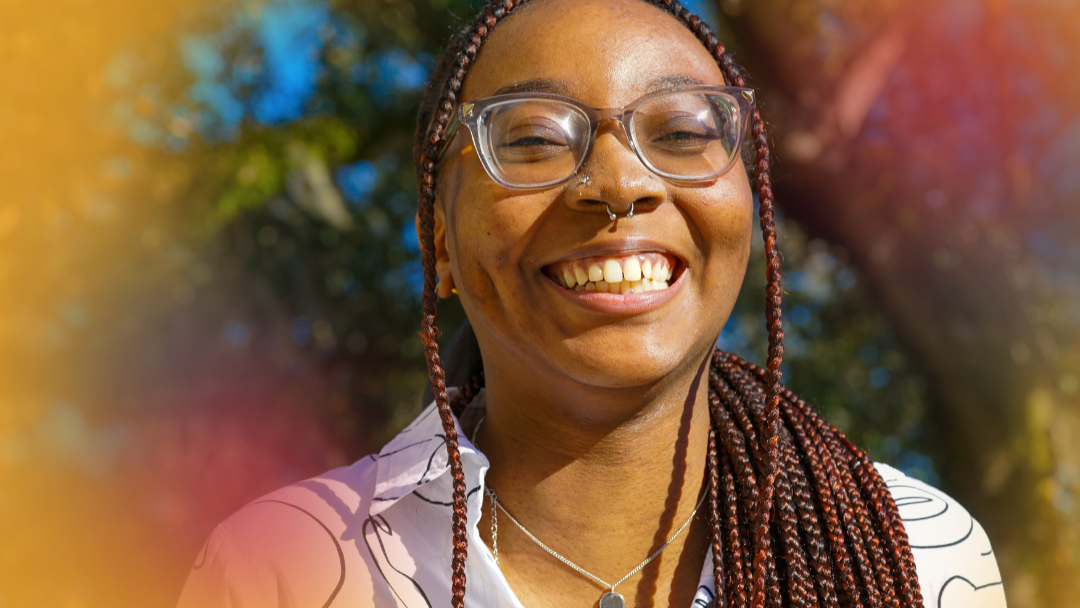2023 IWES Policy Advisory Fellows (PAF) Alumni
Question:
Why is it so important/crucial to focus on Black youth mental health (BYMH), especially in New Orleans/the South?
Aaliyah:
Focusing on Black youth mental health is important everywhere, but in the South it has increased importance. Mental health is already a taboo subject for many Black households, and I have found some communities in the South are not as open to embracing mental health services, so it makes trying to navigate your mental health as a young Black person even harder. Coming from Chicago, I did not realize how different and more difficult trying to get help for mental health struggles is in the South. Not only is there limited access to resources, but there are also many barriers to accessing insurance that would help cover the cost of things like therapy. It is crucial that we invest in and focus on Black youth mental health in the south because if we do not the number of mental health crises will rise while the people available to help will stay stagnant.
Question:
What brought you into this project and what is the impact you think the Fellowship will have (or already has had) on your career/future?
Aaliyah:
I came on to this project because I saw it as a place where my passion for mental health intersected specifically with the mental health of Black people. This project was a way for me to further my understanding of the main factors impacting Black youth mental health and what steps could be taken to change it. This project not only taught me about the community around me, but also taught me many valuable lessons about myself. Before coming on to this project I knew very little about any organizations here in New Orleans and was also hesitant to take initiative to go out and look for them myself. One of my favorite things about this Fellowship is that it introduced me to so many people and organizations that I would have never known about without it. Not only did the Fellowship connect me with the people and places that have expanded my knowledge about the services available to marginalized people in New Orleans, it also gave me the confidence I need to go after other opportunities that I want. The lessons that I have learned because of my Fellowship are invaluable and I know they will make me a better, well rounded, and confident individual long after my departure
Question:
What policy or systems changes would you recommend to support BYMH? What is lacking now, or what equity gaps need to be addressed to improve BYMH?
Aaliyah:
Federally, I believe that there needs to be a big push and allocation of funds for mental health services that will improve Black youth mental health. Although I have seen in New Orleans that there are organizations that are trying their best to address this issue, they cannot help as many people that need the assistance because there is a lack of funding and practitioners. If there is a policy that specifically delegates a large portion of money to current mental health resources and to creating more resources around the nation, getting help for mental health struggles will become more accessible. Even with this federal push, there also needs to be an effort among insurance agencies in providing coverage for mental health services because I know covering the cost is another big barrier when trying to get help. Additionally, it is my hope that by creating more resources and giving more funding to the services that already exist, a lot of weight will be taken off current practitioners shoulders who have to support more people than they can handle.
Question:
What is your vision of a world where Black youth have all of the mental health supports they need? What would it take to get there and what is your hope for the future?
Aaliyah:
I think the biggest thing that it would take to achieve a world in which Black youth have all the mental health support they need would be collective effort. Everyone involved that has a hand in Black youth mental health outcomes needs to be willing to put in more effort to properly support youth instead of putting off the responsibility. People who are in the mental health field, insurance agencies, parents, and lawmakers all need to make the decision to put forth more effort at supporting Black youth so that generational cycles of staying silent about trauma can end. If Black youth had all the support they needed, stigma around mental health in the Black community would break down and all ages would be able to learn and heal from our young people. If healing started with the youth, cycles of passing down trauma would lessen and the rates of those with unaddressed serious mental health struggles would decrease.

